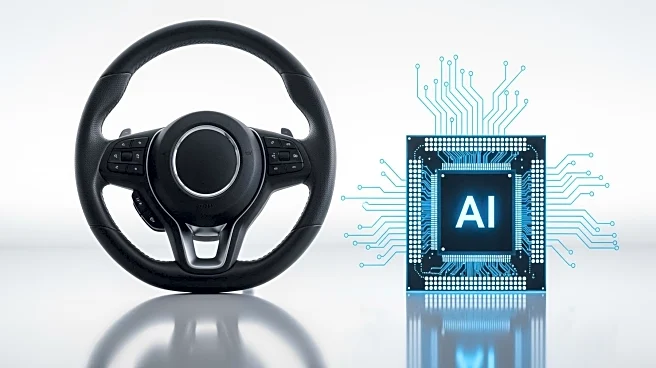What's Happening?
Uber is exploring a new initiative to pay its drivers for training its artificial intelligence systems, as reported by CBS News. This move is part of Uber's broader strategy to diversify the roles of its workforce beyond traditional driving tasks. The
company aims to leverage the unique insights and experiences of its drivers to enhance the capabilities of its AI, potentially improving service efficiency and customer satisfaction. This development comes amid growing interest in AI technologies across various industries, with companies seeking innovative ways to integrate AI into their operations.
Why It's Important?
The initiative reflects a significant shift in how companies like Uber are approaching workforce management and technology integration. By involving drivers in AI training, Uber not only provides them with new opportunities but also taps into their practical knowledge to refine its AI systems. This could lead to more accurate and responsive AI applications, benefiting both the company and its customers. Additionally, this strategy may set a precedent for other companies looking to balance technological advancement with human employment, potentially influencing industry standards and labor practices.
What's Next?
If successful, Uber's approach could inspire similar strategies in other sectors, where employees are engaged in technology development processes. This could lead to a broader acceptance of AI in everyday business operations, with human workers playing a crucial role in shaping these technologies. Furthermore, Uber may expand this initiative, offering drivers more diverse roles within the company, thereby enhancing job satisfaction and retention. Stakeholders, including labor unions and tech industry leaders, will likely monitor these developments closely to assess their impact on employment and technology trends.
Beyond the Headlines
This initiative raises questions about the evolving relationship between technology and labor. As AI becomes more integrated into business operations, the role of human workers may shift from traditional tasks to more collaborative roles with technology. This could lead to new ethical considerations regarding job displacement and the value of human input in AI development. Additionally, the success of such initiatives may influence public perception of AI, potentially easing concerns about automation and job loss.















